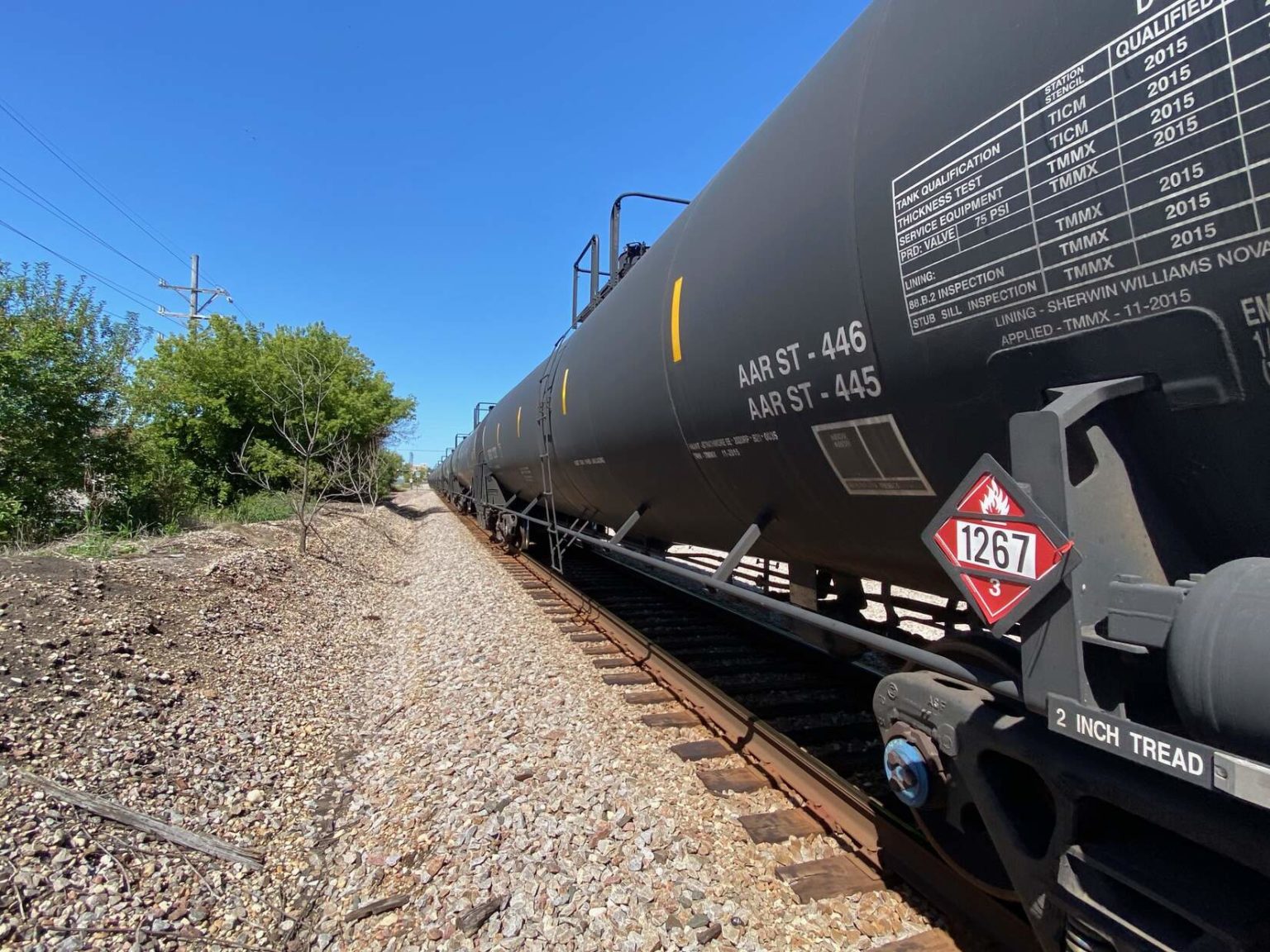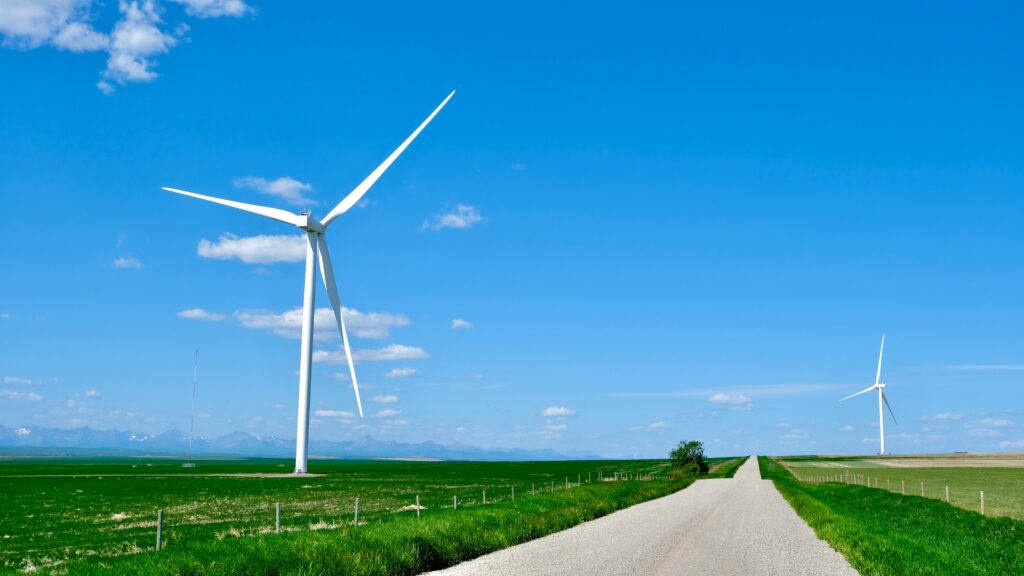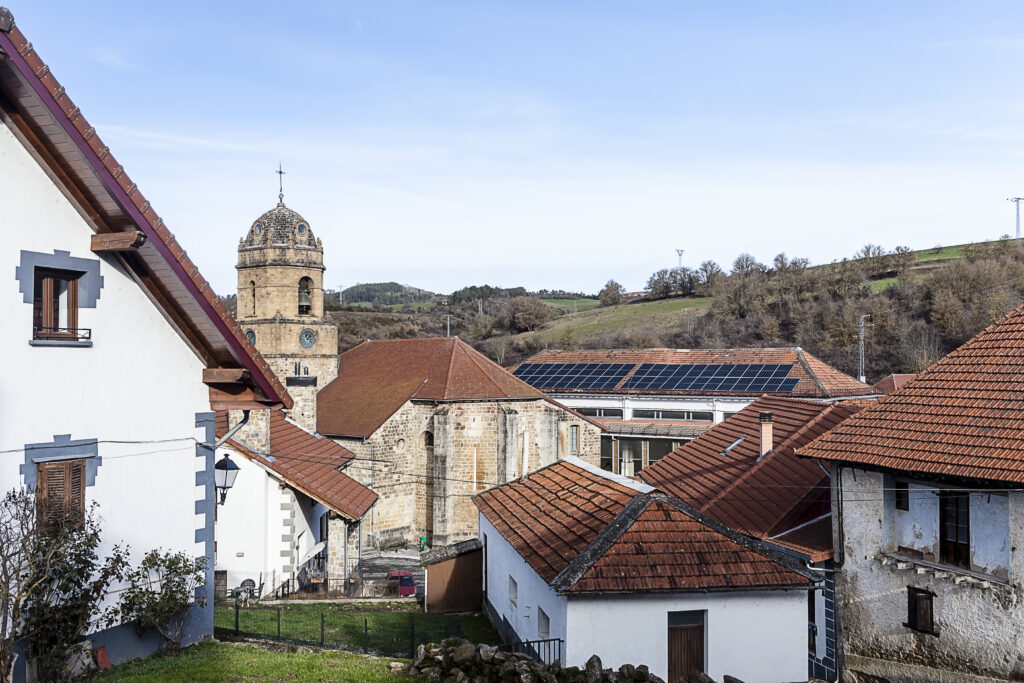A train carrying over 100 cars of volatile Bakken oil derailed in Washington state, causing the evacuation of the town of Custer. At least two of the train cars ruptured and the oil ignited and burned — reminding us once again why these dangerous trains are known as bomb trains.
Matt Krogh of Stand.earth has been leading efforts to keep these dangerous trains off the tracks for years, so he was well aware of the potential deadly consequences of oil train accidents in populated areas. Krogh could see the smoke from this latest accident from his home in Bellingham, Washington.
“I think we got lucky today,” Krogh told the Associated Press, echoing the words of others after previous close calls with oil trains — several of which were highlighted in the DeSmog piece Luck Rides the Rails.
It’s easy to feel lucky after a near miss with an oil train derailment and fire near a populated area because in 2013 an oil train full of Bakken oil derailed and caused catastrophic fires and explosions in the Canadian town of Lac-Mégantic, Quebec, — killing 47 people and destroying much of the downtown area. Downtown Lac-Mégantic has yet to be rebuilt more than seven years later.
BNSF #crudebyrail train derailment/fire. Daily Mail pic shows proximity to business/homes in Custer. Wonder what happened, its a straight line section of rail. Interesting @googlemaps summer pic just happened to show CBR train. Great no injuries #OOTT #Oil https://t.co/1Ar5t7rhLe pic.twitter.com/Z7GuNiyTdB
— Dan Tsubouchi (@Energy_Tidbits) December 23, 2020
Regulators Argue Safety Is Not A Pretext for Regulation
The state of Washington is well aware of the dangers the oil trains pose to the public and the environment and have attempted to address this issue with state regulations. Washington has five oil refineries that all are highly dependent on Bakken crude by rail. Crude-by-rail movements in the U.S. and Canada fluctuate significantly based on market conditions, but the Washington refineries are one destination for Bakken oil that maintain consistent demand for the oil, and rail is the only option to get it to Washington — so the risks to Washington residents who live near the train tracks are ever present.
In 2016 a Bakken oil train derailed in Mosier, Oregon along the Columbia River highlighting the risk the trains pose in the Pacific Northwest. Many trains bring the Bakken oil through Oregon and the Columbia River gorge to Washington.
In my 2019 book Bomb Trains: How Industry Greed and Regulatory Failure Put the Public at Risk I explain why the trains carrying highly volatile Bakken oil are dangerous and the simple steps the oil and rail industries could take to remove these dangers. All are steps the industries have successfully lobbied against despite the risks to the public and the 47 fatalities in Lac-Mégantic.
Washington regulators and politicians tried to take the most important safety step by passing a law that limited the volatility of the crude oil being moved by rail through Washington, a move that would greatly reduce the risk of fires and explosions during derailments. A rule proposed at the end of the Obama administration to limit the volatility was officially withdrawn by the Trump administration in May of 2020.
#Custer #Washington
Bystander video of flaming train cars before emergency services arrived on location. Sirens can be heard at the end.“Video of the Incident was shared on Social media by Katie Blake via Calvin Poor” pic.twitter.com/MTMCx8yQ60
— Shane B. Murphy (@shanermurph) December 22, 2020
“If the federal government won’t act to protect public safety and adopt a safer nationwide standard, we will adopt our own,” state Sen. Andy Billig (D-Spokane) said in March 2019 of the bill he sponsored. “There is just too much to lose — for people and our environment.”
As DeSmog reported in May, the Pipeline and Hazardous Materials Safety Administration (PHMSA) did act, but that action was to overrule Washington’s proposed regulation with the argument that safety regulations could not get in the way of markets — arguing that a state can not use “safety as a pretext for inhibiting market growth.”
New Administration May Offer Chance at Safety Regulations
The act by the Trump administration’s regulators of withdrawing the proposed federal rule to limit oil volatility for transportation of crude oil by rail by was consistent with the official stated policy of deregulation with regards to rail safety.
This policy led to the removal of the most important safety regulation for oil-by-rail transportation that was enacted during the Obama era, which would have required oil trains to have modernized braking systems. The Trump administration removed that regulation in December of 2017.
The incoming Biden administration will have the opportunity to finally address the known dangers of moving hazardous oil, ethanol and liquefied natural gas (LNG) by rail. Reinstating the braking requirement and regulating oil volatility would be important first steps. Two other areas that would improve safety would be limiting train lengths and requiring tank cars that weren’t easily punctured in derailments.
DeSmog has reported on how longer trains derail more often and yet there are no regulations for train length for trains moving hazardous materials. Most of the major derailments involving oil trains have involved trains with more than 100 cars, like the train in Custer.
The 2015 regulations for new tank cars for oil trains required the use of new DOT-117 model tank cars. As they did in this latest derailment, these tank cars have failed in all of the major derailments involving the cars hauling oil and ethanol.
Four years of the Trump administration overseeing the rail industry has put the public at even greater risk. The administration’s reckless approval of LNG-by-rail without proper safety testing or new regulations greatly increases the future danger to the public if the LNG industry starts using rail as a major mode of transportation.
Pete Buttigieg has been nominated to be the next Secretary of Transportation where he will have oversight of rail safety. At the very least Buttigeig could begin to protect the public by simply reinstating the oil-by-rail safety regulations that have been repealed, and then moving forward with the proposed regulations to limit the volatility of any crude oil moved by rail.
Until the oil and rail industries are properly regulated, the public will continue to be at great risk from bomb trains and will have to trust in luck to keep them safe.
Why do you call them bomb trains? https://t.co/QXGLxUMso9
— Justin Mikulka (@JustinMikulka) June 15, 2020
Image: Oil train “pipeline on wheels” rolls through Watertown, Wisconsin. Credit: Justin Mikulka
Subscribe to our newsletter
Stay up to date with DeSmog news and alerts







